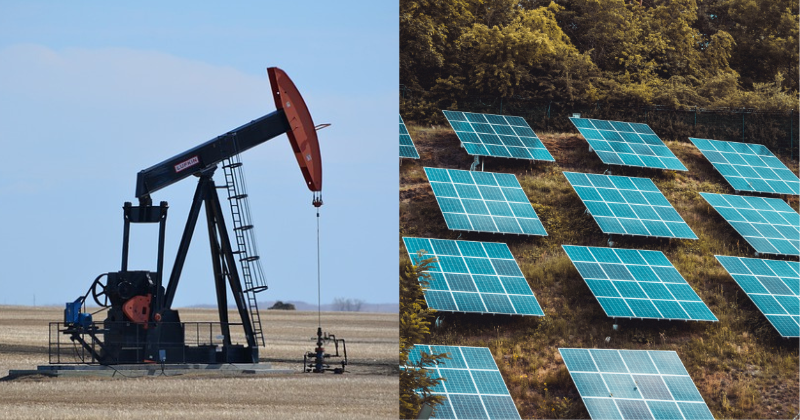
Given a choice between an energy future that is a) dependent on generation using sun, wind or falling water, or b) dependent on thermal sources using fossil fuels or uranium, or c) a combination of both, which do Americans prefer? Should it surprise anybody that the answer is both?
Reliance on both, the need for at least a substantial amount of electricity not depending on weather, is at the heart of the recommendations coming at Virginians from many directions. It came recently from the Federal Energy Regulatory Commission, including the Virginian on that panel, Mark Christie. It is the premise for both Virginia Governor Glenn Youngkin (R) 2022 Energy Plan and Dominion Energy Virginia’s new integrated resource plan.
The message is being disputed by the advocates for the rapid retirement of existing coal and natural gas generation, many of whom are (sadly) also strongly anti-nuclear. But a recent poll shared with the Thomas Jefferson Institute for Public Policy indicates the message of maintaining traditional baseload strongly resonates. It does so across party lines.
The American people are receptive to the message because they already believe that fossil fuels will continue to be around, and surprising percentages of them would like to see their use expanded. The number of Americans dubious of reaching the poorly defined target of “net zero” by 2050 – a Shibboleth among Democrats — is higher than the percentage who believe it possible.
A recent poll by Hearts + Minds Strategies of Reston, with the Thomas Jefferson Institute an invited listener to the discussion (watch it in full or read a summary here), underscores this assertion. This was not a confab of climate catastrophe skeptics. Quite the opposite.
Its polling found a large majority (72%) of Americans, even 69% of identified liberals, want the U.S. to be energy independent. Asked about whether they wanted traditional energy sources, renewable, or both, 64% said both and 23% said traditional only. Only about 1 in 8 respondents favored pure renewable.
That bears repeating. Of the 1,000 polled, 87% favored either full reliance on thermal generation or some combination of traditional and renewable generation. Only 13% favored renewables exclusively. The rigid Democratic positions of “green only” are in response to just a subset of their own core voters.
Looking at various energy sources, solar and wind were the most popular, with oil and coal the least popular. But 67% favor either expansion or retention of natural gas, with only 19% advocating its retirement. A quarter of Democrats favor gas expansion. Nuclear power’s support remains soft, with only 25% favoring expansion and 28% favoring retention, combining to a bare majority.
Given just two choices, support or opposition, 56% overall favored expansion of domestic energy production (oil and gas included) and only 14% opposed it. On related infrastructure, 58% favored expansion and only 12% opposed. The crosstabs were not shared, but those figures cannot represent just Republicans or conservatives.
Asked whether they believed “net-zero” was probable by 2050, only 5% said definitely yes and 22% probably yes. The definitely not and probably not groups added up to 39% with 33% not sure. Plenty of liberals and Democrats were among the skeptics, although one of the analysts said parsing the results by age in a different poll produced more dramatic gaps.
The youngest voters embrace the climate apocalypse narrative. That is the case in both parties, although among the youngest Democrats the results approach unanimity (99.4%, the analyst says on the recording.) Look to the schools and 30 years of a unified media message of alarmism for explanation.
It is not surprising that people who have lived through five or six decades of weather are less susceptible to the nonsense that every storm or drought is a sign of imminent climate catastrophe. The good thing about youth and inexperience is time cures both (but probably not before the next election.)
Again, the Youngkin Energy Plan and new Dominion IRP line up very well with those attitudes, even though the poll was national and not just a Virginia sample. The people are ready to hear and accept the advice coming from FERC, the regional transmission organization PJM and our own FERC Commissioner Christie.
Every time anybody preaches the message that we can run a modern economy on wind and solar, it should be challenged. Politicians and industry should not be afraid to engage with a contrary message of the need for balance, diversity and reliability. The American people are smarter on this than many give them credit for.
- Trump’s Energy Promises Face Hurdles in Anti-Hydrocarbon Virginia - November 20, 2024
- No, RTD, Hurricane Helene Not Proof of ‘Climate Change’ - October 3, 2024
- A Transparent Effort to Increase General Assembly Authority to Eliminate Hydrocarbon Fuels - September 26, 2024
